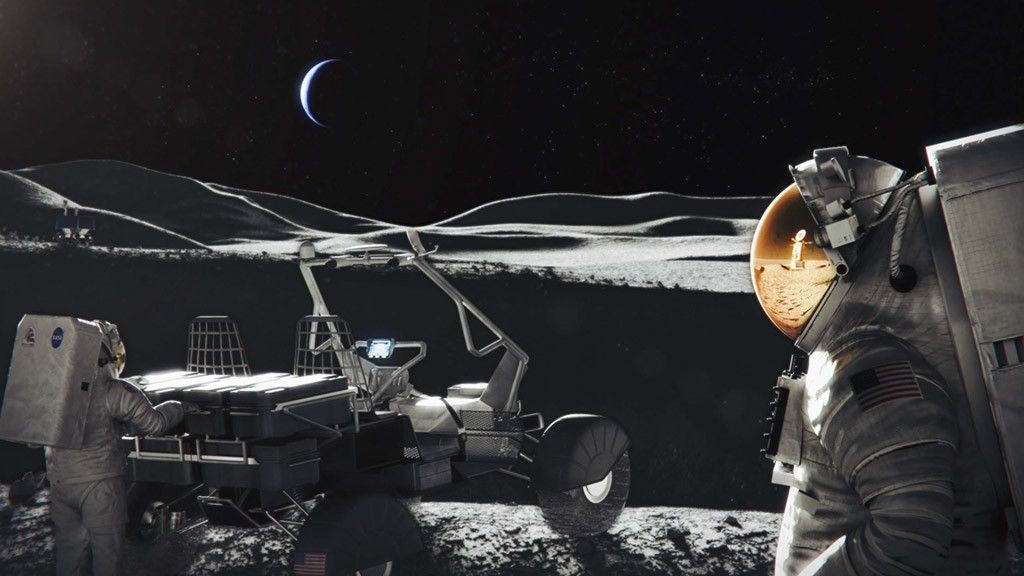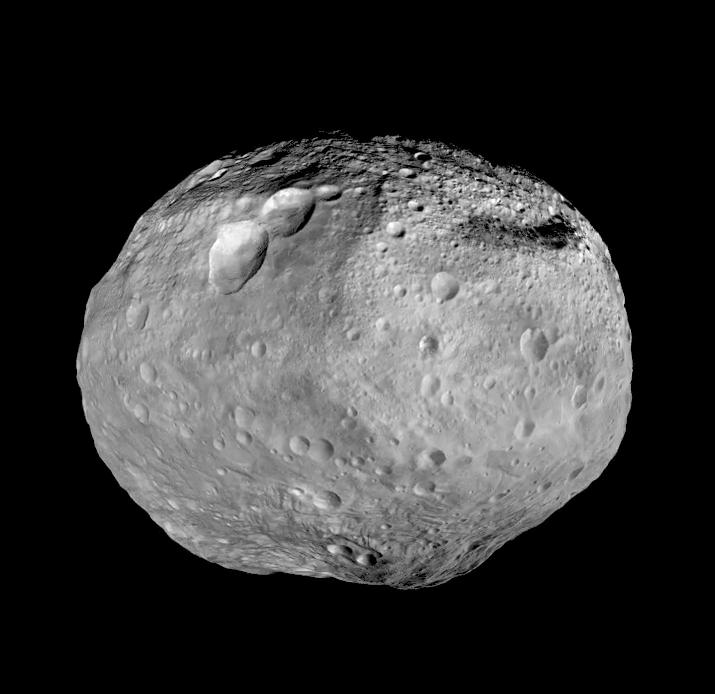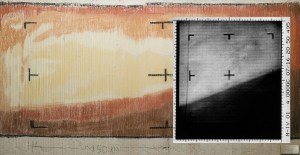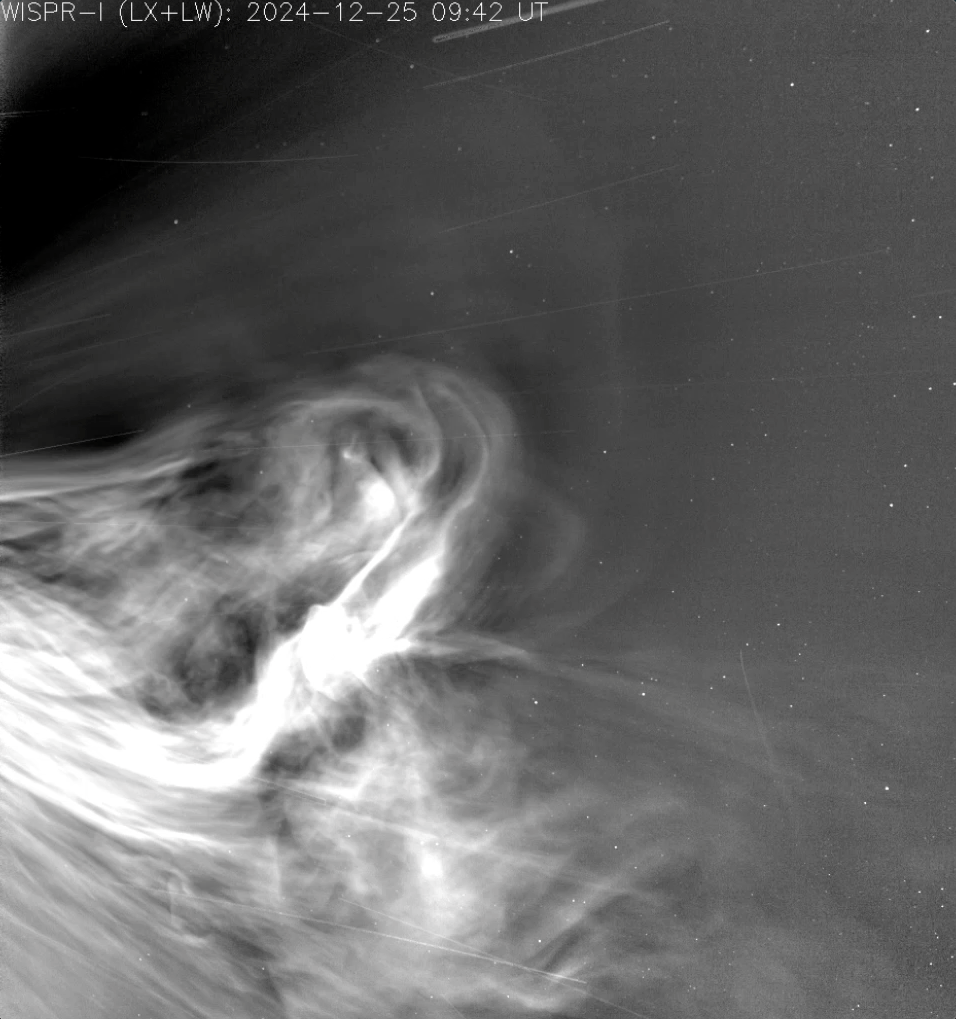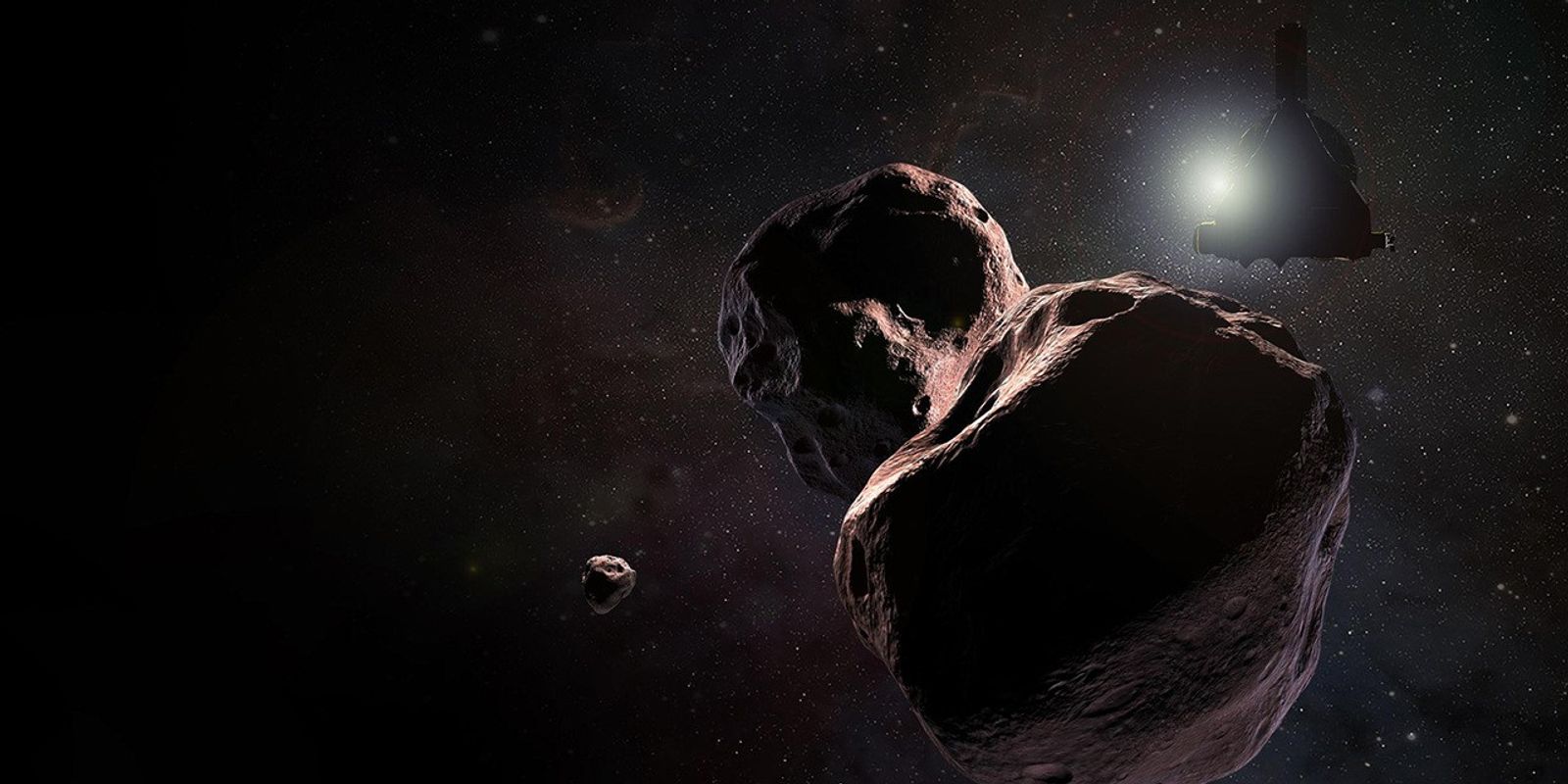Cassini is orbiting Saturn with a 31.9-day period in a plane inclined 45.5 degrees from the planet's equatorial plane. The most recent spacecraft tracking and telemetry data were obtained on April 2 using one of the 34-meter diameter Deep Space Network (DSN) stations at Goldstone, California. Except for the science instrument issues described in previous reports (for more information search the Cassini website for CAPS and USO), the spacecraft continues to be in an excellent state of health with all of its subsystems operating normally. Information on the present position of the Cassini spacecraft may be found on "Eyes on the Solar System".
Wednesday, March 26 (DOY 085)
The Imaging Science Subsystem (ISS) took control of Cassini's pointing to lead a Titan cloud monitoring observation for 1.5 hours; the Composite Infrared Spectrometer (CIRS) and the Visible and Infrared Mapping Spectrometer (VIMS) observed in ride-along mode. When the observation was finished, the Ultraviolet Imaging Spectrograph (UVIS) began a 16-hour observation of Saturn in the extreme- and far-ultraviolet (EUV and FUV) parts of the spectrum; ISS rode along to take visible-light images.
Thursday, March 27 (DOY 086)
ISS led CIRS and VIMS in another 1.5-hour Titan cloud monitoring observation. Next, VIMS started an 11-hour observation of Saturn's northern polar auroral region, with CIRS, ISS, and UVIS riding along.
Friday, March 28 (DOY 087)
UVIS led the pointing to observe Saturn's northern auroral region again for 11 hours while CIRS made ride-along observations. VIMS then took control to start another 11-hour observation, mapping the planet's northern hemisphere while CIRS and ISS rode along.
Saturday, March 29 (DOY 088)
ISS led CIRS and VIMS as they monitored Titan's clouds again for 1.5 hours, and then VIMS began 10 hours of studying Saturn's northern polar auroral oval with ISS also taking data.
Sunday, March 30 (DOY 089)
ISS spent 10 hours tracking Saturn's northern polar vortex to make a movie, with VIMS riding along. Results of some previous observations of this type can be seen in this movie: /resources/10764
Monday, March 31 (DOY 090)
ISS controlled pointing for two observations. The first was of Titan and its clouds for 1.5 hours while CIRS and VIMS rode along; the next was Saturn's polar vortex for 10 hours to make a movie with VIMS riding. When these were finished, UVIS began another observation of Saturn in the EUV and FUV, with ISS riding along to take images.
Saturn's small, elongated moon Prometheus is seen near the F ring in an image featured today: /resources/16003
Tuesday, April 01 (DOY 091)
Titan was the target for another 1.5-hour watch as ISS led CIRS and VIMS to monitor its clouds. Finally, CIRS led UVIS and VIMS in a 10.5-hour study of Saturn’s atmosphere to better define its composition.

















